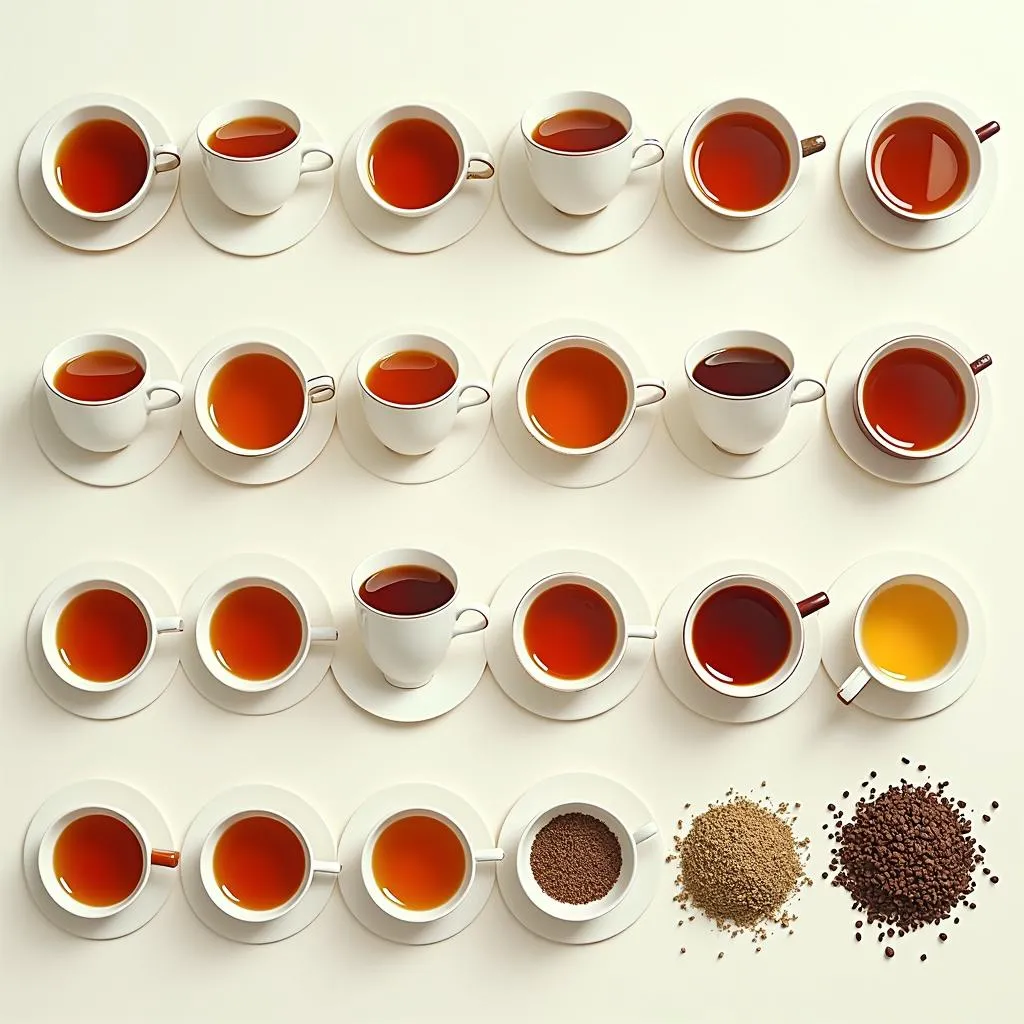“My cup of tea” – a phrase as comforting and familiar as the beverage itself. But how often do we pause to consider the rich tapestry of meaning woven into these simple words? While its literal translation might evoke images of steaming mugs and fragrant leaves, “my cup of tea” transcends the realm of beverages, becoming a powerful idiom that speaks volumes about our individual preferences, passions, and perspectives.
This exploration delves into the heart of this beloved phrase, uncovering its origins, unpacking its various interpretations, and examining its enduring relevance in our daily conversations.
More Than Just a Beverage: Deciphering “My Cup of Tea”
At its core, “my cup of tea” is a metaphor, a linguistic device that draws a parallel between a specific type of tea and something we find enjoyable or appealing. It’s a way of expressing affinity, a declaration of what resonates with our unique tastes and inclinations. Just as a perfectly brewed cup of Earl Grey might delight one person while another craves the robust flavors of Assam, the phrase encapsulates the subjective nature of preference.
 Discovering Your Personal Preferences
Discovering Your Personal Preferences
A Brief History in a Teacup: Tracing the Phrase’s Roots
While pinpointing the exact origins of idioms can prove as elusive as capturing steam, linguistic historians suggest that “my cup of tea” emerged in the late 19th century. Its rise in popularity coincides with the burgeoning tea culture in Britain and its colonies. As tea drinking became deeply ingrained in social customs and everyday life, the phrase organically found its way into common parlance.
Interestingly, the initial usage leaned towards expressing dislike. “Not my cup of tea” emerged as a polite way to voice disinterest or disapproval. Over time, however, the phrase evolved, embracing a broader spectrum of preference, encompassing both likes and dislikes.
Brewing Up Meaning: Interpretations of “My Cup of Tea”
“My cup of tea” is remarkably versatile, adapting its meaning to various contexts. Here are a few interpretations:
- Personal Preference: This is the most common usage. It expresses liking or enjoyment for something, be it a hobby, a genre of music, a type of food, or even a personality trait. “Classical music is my cup of tea” conveys a clear preference over other genres.
- Compatibility and Shared Interests: The phrase can also signify a sense of alignment or common ground with another person. Saying “We share the same taste in books, they’re definitely my cup of tea” implies a connection based on shared interests.
- Areas of Expertise: “My cup of tea” can also refer to one’s area of knowledge or skill. A mechanic might say, “Fixing engines is my cup of tea,” signifying their proficiency in that domain.
Why “My Cup of Tea” Endures: The Power of Idioms
The enduring appeal of “my cup of tea” lies in its ability to convey a nuanced meaning with brevity and charm. Idioms, by their very nature, add color and personality to language, allowing us to express complex ideas in a way that is both relatable and memorable.
 Connecting Through Shared Language
Connecting Through Shared Language
Beyond the Literal: “My Cup of Tea” in the 21st Century
In our digital age, “my cup of tea” has transcended spoken language, finding a home in online spaces and social media. Hashtags like #MyCupOfTea and #NotMyCupOfTea abound, showcasing diverse interests and sparking conversations about everything from fashion choices to travel destinations.
The phrase has also been adopted by brands and marketers seeking to connect with audiences on a more personal level. By framing products or services as someone’s “cup of tea,” they tap into the emotional resonance of the phrase, positioning themselves as caterers of individual taste and preference.
“My Cup of Tea Means”: A Final Sip
As we’ve explored, “my cup of tea” is much more than a simple statement about beverage preference. It’s a linguistic gem that reflects the richness of human experience, encompassing individual tastes, shared passions, and the very essence of what makes us unique. So, the next time you utter this seemingly commonplace phrase, take a moment to appreciate its layers of meaning and the stories it helps us tell.
FAQ
-
What is the origin of the phrase “my cup of tea”?
The phrase is believed to have originated in the late 19th century, coinciding with the rise of tea culture in Britain. -
Can “my cup of tea” be used to express dislike?
Yes, while it often expresses liking, it can also be used to politely convey disinterest or disapproval, especially in the form “not my cup of tea.” -
Is “my cup of tea” a common phrase today?
Yes, it remains a popular idiom in both spoken and written English, frequently used online and offline. -
What makes “my cup of tea” an effective idiom?
Its enduring appeal lies in its ability to convey complex ideas about preference and compatibility with brevity and charm. -
How has the digital age impacted the use of “my cup of tea”?
The phrase has seamlessly transitioned into online spaces, finding new life in hashtags and social media conversations.
Need More Information?
For more insightful articles about language, culture, and everything in between, explore our website or contact us at:
Phone: 0372999996
Email: [email protected]
Address: 236 Cầu Giấy, Hà Nội
Our dedicated team is available 24/7 to assist you.
